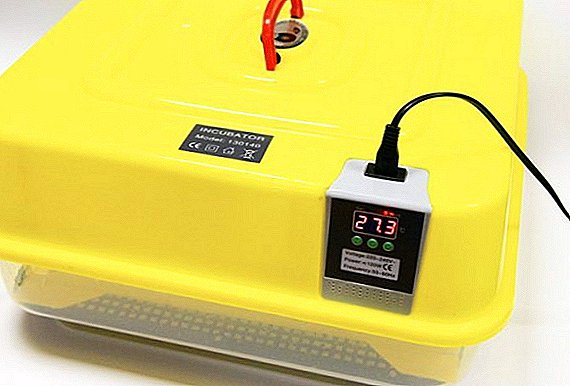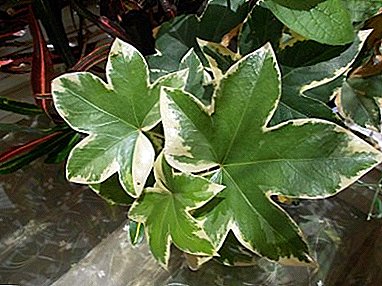 It has long been no secret that yeast is used not only in cooking and alcohol preparation, but also in medicine and cosmetology. Another option of use is a yeast for a vegetable garden, for feeding plants. Consider in this article how they affect the plants and how to feed the plants with yeast.
It has long been no secret that yeast is used not only in cooking and alcohol preparation, but also in medicine and cosmetology. Another option of use is a yeast for a vegetable garden, for feeding plants. Consider in this article how they affect the plants and how to feed the plants with yeast.
Did you know? To date, there are about 1,500 species of yeast cultures.
Yeast: composition and description
Yeast is essentially single-celled fungi, but very different from other fungi of this species. They live in liquid and semi-liquid substances. 
Important! It is one of the best sources of protein, organic iron and various minerals. They can lower cholesterol.The composition depends on their type and breeding environment. They usually contain water, vitamins, proteins, minerals, fats, phosphorus, carbohydrates, nitrogen and various inorganic substances.
Main types:
- baking;
- fresh;
- dry;
- granulated;
- beer.
How do yeast affect plants, what are useful in the garden
Yeast contains many essential substances not only for plants, but also for the soil.  Using this fertilizer, you will get the following results:
Using this fertilizer, you will get the following results:
- Growth improvement (due to the content of beneficial bacteria, minerals, even with insufficient light, plant growth and seedlings are improved, the appearance of shoots is accelerated).
- Increased root formation (due to the high content of vitamins, carbohydrates, proteins, amino acids, the activity of beneficial microorganisms in the soil is activated, which has a beneficial effect on the roots).
- Improving stamina and improving immunity (due to the content of B vitamins, phosphorus, iron, the risks of diseases are reduced, recovery processes are stimulated).
To improve the growth of plants, gardeners and gardeners use various stimulants: sodium humate, succinic acid, the preparations "Pollen", "Ovary", "Etamon", "Kornerost".
How to make a feed for the yeast do it yourself: recipes for yeast dressings
You can prepare a top dressing for plants from yeast at home. Consider a few simple recipes.
Sourdough Cereal
Composition:
- wheat - 1 cup;
- flour - 2 tablespoons;
- sugar - 2 tablespoons.
Bread-yeast sourdough
You will need:
- bread crusts;
- 1 pack of dry yeast;
- 1 cup of sour milk;
- ash - 1 cup;
- 10 liter capacity.
Bread ferment
You will need:
- deep tank;
- pieces of black bread;
- water.

Sourdough Hops
Composition:
- hop cones (fresh or dry) - 1 cup;
- water -1.5 liters;
- wheat flour - 4 tablespoons;
- sugar - 2 tablespoons;
- 2 boiled potatoes.
What plants can be fertilized with yeast
Bread has long been used as a fertilizer for the garden. Such fertilizers are well suited for seedlings and for adult plants. For example, as feeding potatoes, cucumbers during fruiting, seedlings of tomatoes and peppers, as well as for tomatoes in the greenhouse yeast.
Garden
For tomatoes, peppers and potatoes, a top-dressing based on bread-yeast sourdough is well suited. It is necessary to mix 1 cup of leaven with a bucket of water and pour the resulting solution under each bush. Bread dressing is well suited for cucumbers. Sourdough need to pour two liters of water and water the plants. Such feeding is best done from the beginning of flowering, no more than once a week.
If you are a strawberry lover and are wondering if you can pour strawberries with yeast, then the answer - Yes. Bread ferment is also good for strawberries. It is best to use it before flowering. 
Did you know? There is a kind of yeast - black. They can be dangerous for people and even fatal, especially for lung diseases.
Indoor flowers
Do not forget that not only the plants of your garden or garden need fertilizer. Your indoor flowers also need additional feedings, vitamins and fertilizers. It is important to know how to properly feed homemade flowers with yeast and how to dilute the yeast.
You can feed them with any yeast solution. Watering solution diluted 1: 5 with water. But it is necessary to use such feeds much less frequently than for garden plants. Best of all twice a year or when transplanting flowers.
Houseplants also need additional feeding, so you need to know how to properly feed the soil for spathiphyllum, cyclamen, monstera, hippeastrum, clerodendrum, kalanchoe, tsiperus, kampanule.
When yeast as a fertilizer is contraindicated
There are no obvious contraindications to the use of such dressings. But it is important to remember about the existence of a number of its harmful properties.  When watering plants with a yeast solution, the soil loses a lot of calcium and potassium. This is easy to avoid, if you do not forget to fertilize the soil with eggshell and wood ash, do not forget about the additional feeding of soil with minerals.
When watering plants with a yeast solution, the soil loses a lot of calcium and potassium. This is easy to avoid, if you do not forget to fertilize the soil with eggshell and wood ash, do not forget about the additional feeding of soil with minerals.
Important! If you want to get maximum results from plant nutrition, you need to use it only for well-warmed earth. At low temperatures, the fungus will develop very poorly.Do not use bread to fertilize onions and garlic. It will make them loose and spoil the taste.
Adhere to the right technology in the preparation and use of feedings, and your plants will always be healthy and give a good harvest.












